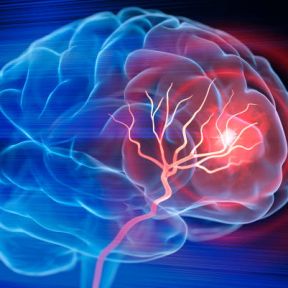KEY POINTS-
- Adult attachment styles activate different areas of your brain, as seen in brain imaging (fMRI) research.
- Self-help programs and popular books can help you change your attitudes but not your biology.
- Unless you take what you learn and practice, your brain’s biology will pull you back into your old behavior.
So, you realize that you have an insecure attachment style. Maybe you came to this realization by reading about attachment theory after struggling in your relationships. Or maybe you did an online assessment, read a blog, or watched a YouTube channel. Despite assertions from online programs and many popular press books on attachment, attachment styles are not easy to change. It takes committing to action, study, practice, and a lot of self-compassion and frustration tolerance.

Why Your Biology Might Conspire Against You
One reason that attachment styles are so hard to change is that by the time you reach early adulthood, a large part of your attachment style is encoded into your brain’s biology. You might change your attitudes or ideas about relationships (maybe through therapy), and this might help prevent acting out in low-stress situations. But when exposed to a stressor (e.g., relationship threat, being sick or vulnerable, failing at something meaningful), the biological part of your attachment system is likely to kick in and hijack your thinking. By extension, this will change your emotional response and you might quickly revert to old behavior patterns… even though you rationally know that the old way isn’t going to work and is going to cause you pain.
Your brain is not one unitary place; it is a combination of systems that do not always agree with each other.
Most researchers agree that emotions have a thought component and a physical component. Information comes into the relay station of your brain called the thalamus. The thalamus sends the information to your emotional centers in the limbic system and to your cortex (where conscious thoughts occur). But the route to the limbic system is faster. By the time your cortex figures out what happened in a given social situation, your limbic system has already triggered a chemical release (like norepinephrine and cortisol) that causes a physical anxiety response. Your thinking brain then takes the anxiety response to mean that the social threat is real, which changes the way you think about it (which may be in error).
For example, you have decided to feel confident and assured. And, you might have no rational reason to think your partner is interested in other people. But when they don’t call you when they said they would, you get flooded with adrenaline and experience a strong anxiety response. And this stress response means something is truly wrong… right? So, you jump in your car and drive by your partner’s favorite hang-out to check on them.
The example above is for preoccupied or fearful attachment, but consider what might happen if you are avoidant. Your limbic system typically perceives and responds to incoming social data, but the outgoing message from your limbic system never reaches your thinking brain. Maybe you decided to be available and warm for your partner, and not so distant. But they want so much closeness and seem so needy that you feel like coming out of your skin. This is because your brain is triggering a stress response, but you can’t process the information in your conscious mind. So, you start having critical thoughts about them and tell yourself all the reasons they are not right for you (even though you loved them yesterday). So, you act cold and awkwardly end the evening early.
Why This Happens
You are born with a brain that can be molded to accommodate whatever environment you are born into. You have way more wires than you need. Wires that get used a lot are strengthened; and the ones you don’t use, you lose (dendritic pruning). The environment you are born into is the social environment of your parents. So, unwitting though they may be, your parents had a large role in writing your emotions and social perception system.
If you are raised by parents who don’t let you express your negative emotions like sadness or anxiety, many of the wires from these emotions to your thinking brain will get pruned away.
If you are raised by parents who are unpredictable, your brain’s alert system must remain vigilant and highly active. So your social monitoring system gets strengthened and won’t turn off even when you want it to.
If you are raised by parents who are frightened or frightening, you may alternate quickly between wanting to run away (and your brain shuts down or deactivates) and wanting to attack (hyperactivation).
Here is a sampling of brain imaging research on attachment.
- Perceiving social stressors activates the brain’s threat detection mechanism (in the amygdala) and this activation is much stronger in people with insecure attachment styles (Lemche et al., 2006).
- If you had an insecure attachment style in childhood your brain is going to have much greater difficulty up-regulating positive emotions … “consistent with relative inefficiency in the neural regulation of positive affect” Moutseana et al. (2014).
- In avoidant people, the emotional circuits of the brain respond less to smiling faces. Avoidant folks are less influenced by social rewards (Vrticka et al., 2008).
- In preoccupied people, emotional circuits of the brain respond more intensely to angry faces. Anxious people are more sensitive to social punishment (Vrticka et al., 2008).
The take-home message is that if an insecure attachment style causes you pain, you should try to alter it. You may have success in altering your attitudes to be more trusting of others, more compassionate toward yourself, and to view the social world generally as a safer and more predictable place. If you’re more avoidant, you should also work on increasing your positive social perception and emotional experiences. If you are more anxious, you should work on decreasing your negative social perception and pull toward negative emotions. But you should realize that in very stressful situations, your biology is likely to take over and pull you back to your old way of perceiving, thinking, and behaving toward the social world. It will change, but it will take time and lots of practice. So be gentle on yourself. And if you have a secure attachment style but have a relationship partner who is more insecure but who is working on themselves, practice a little patience and grace as their biology catches up with the rest of them.


